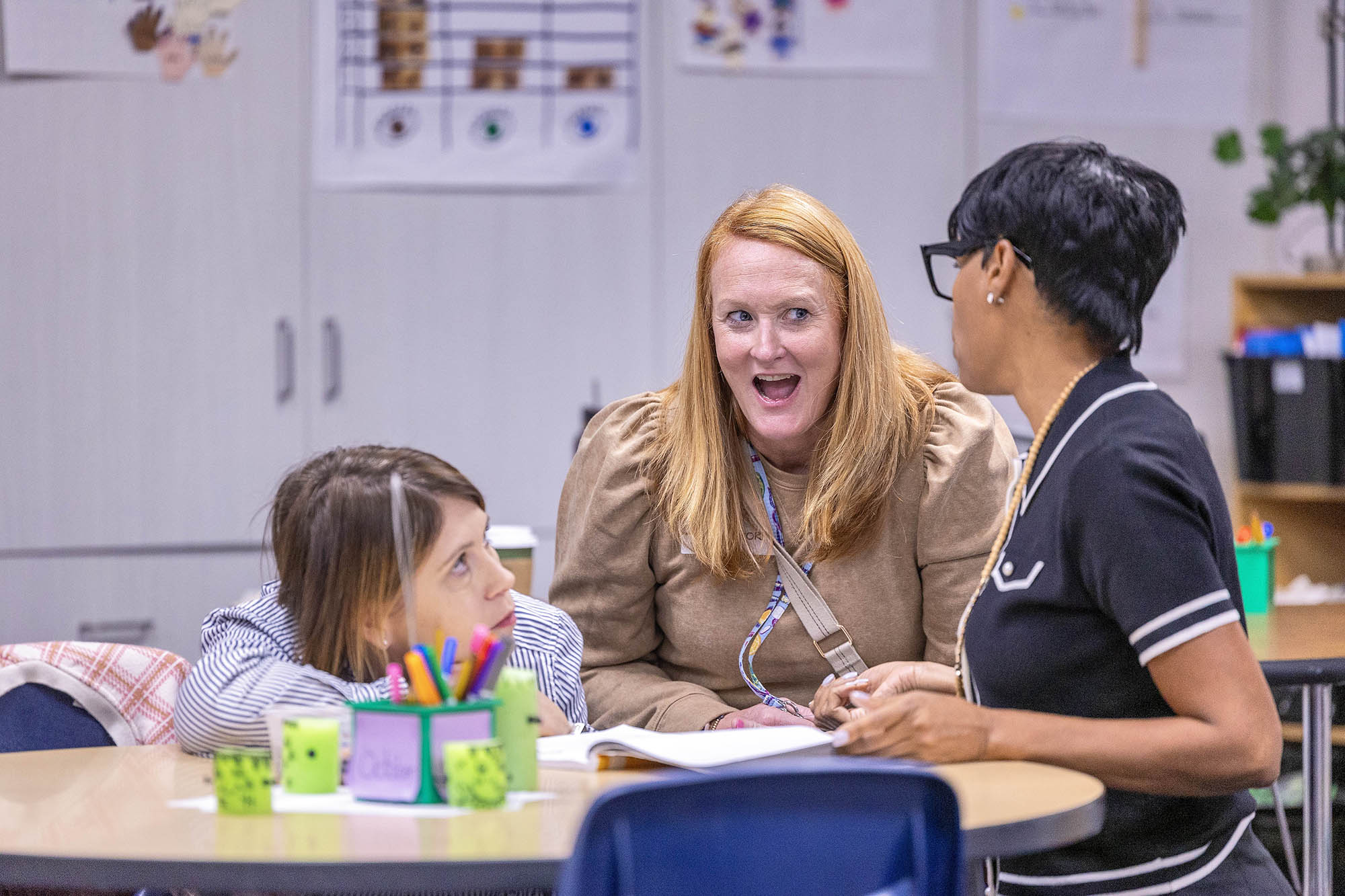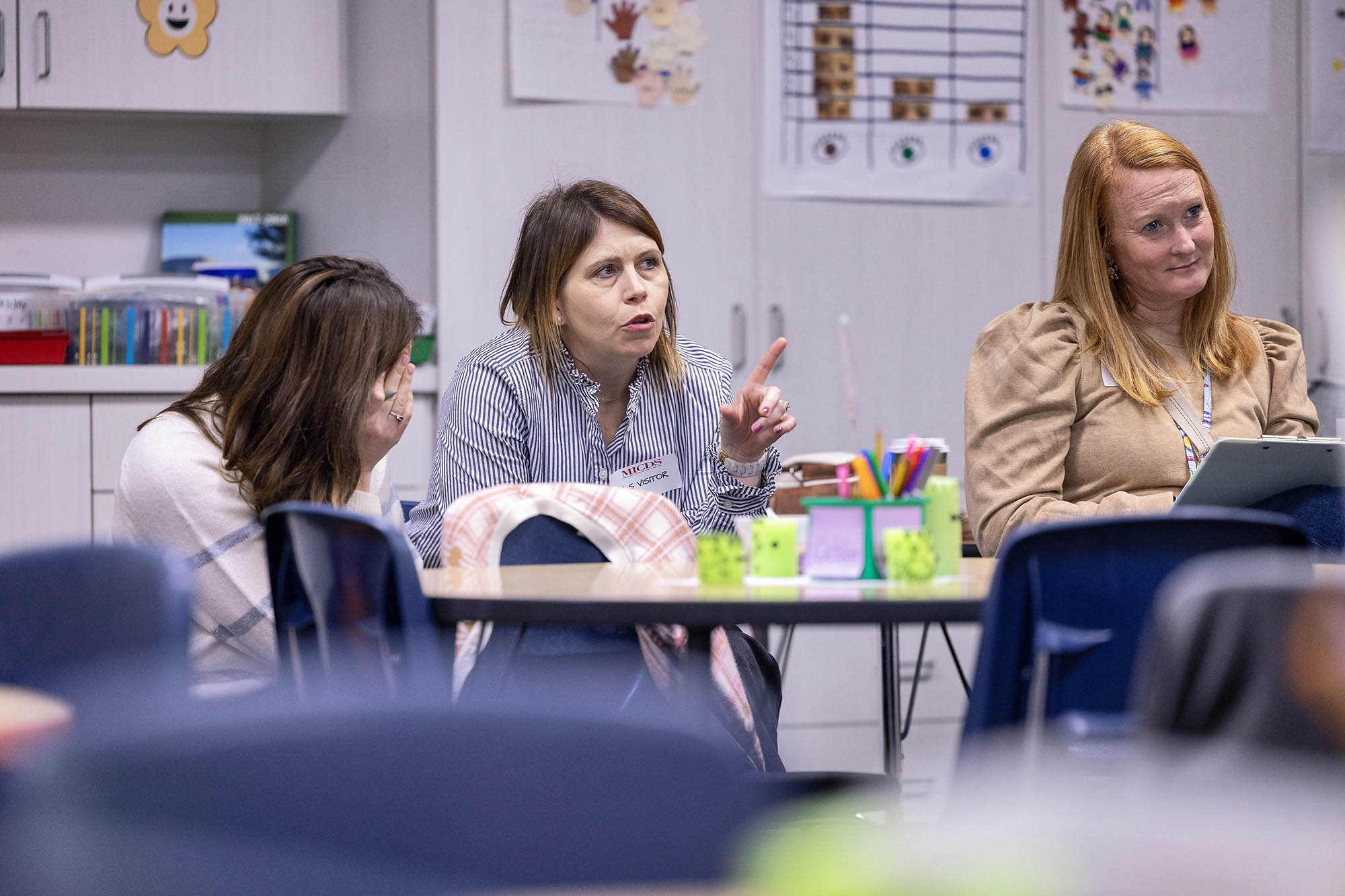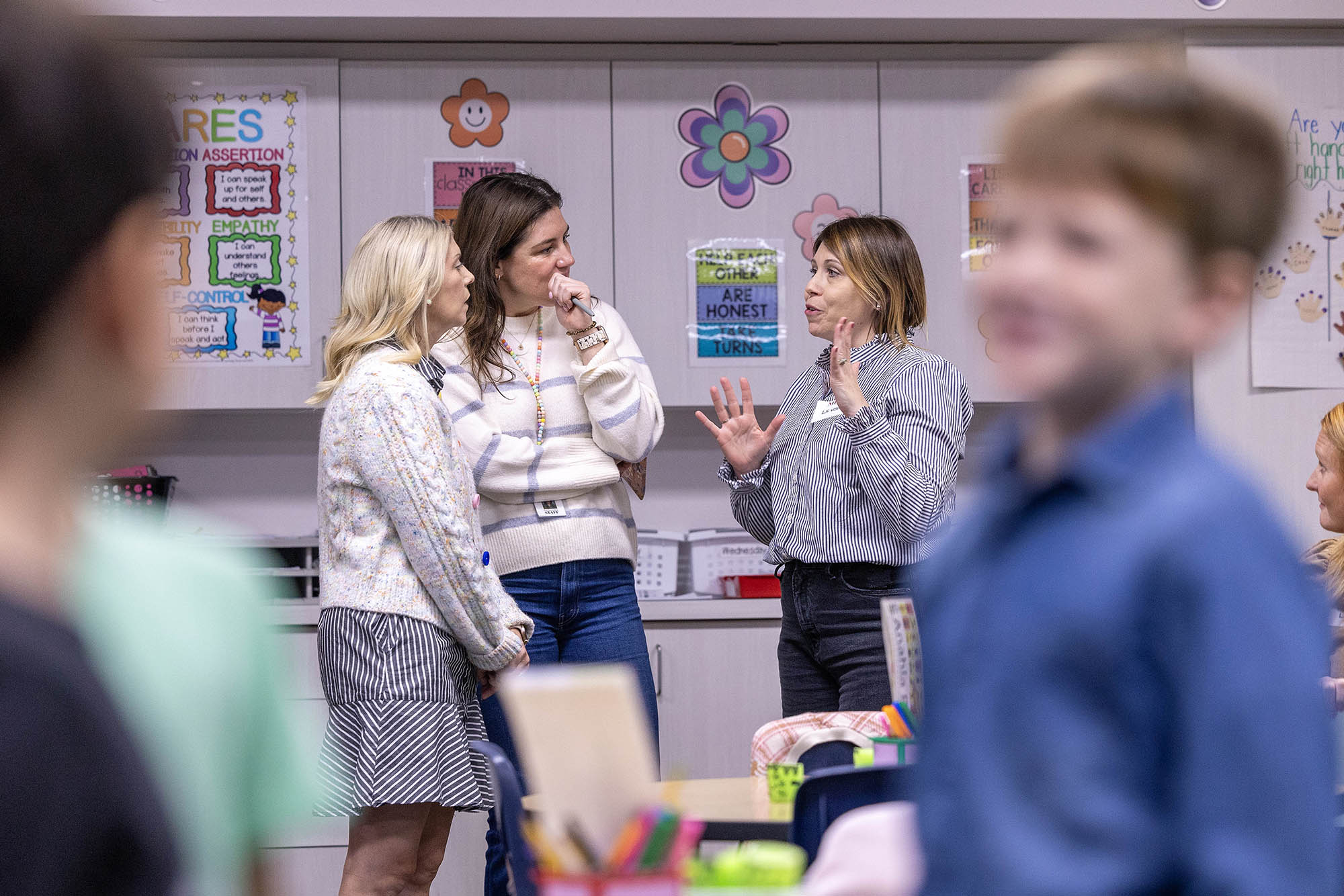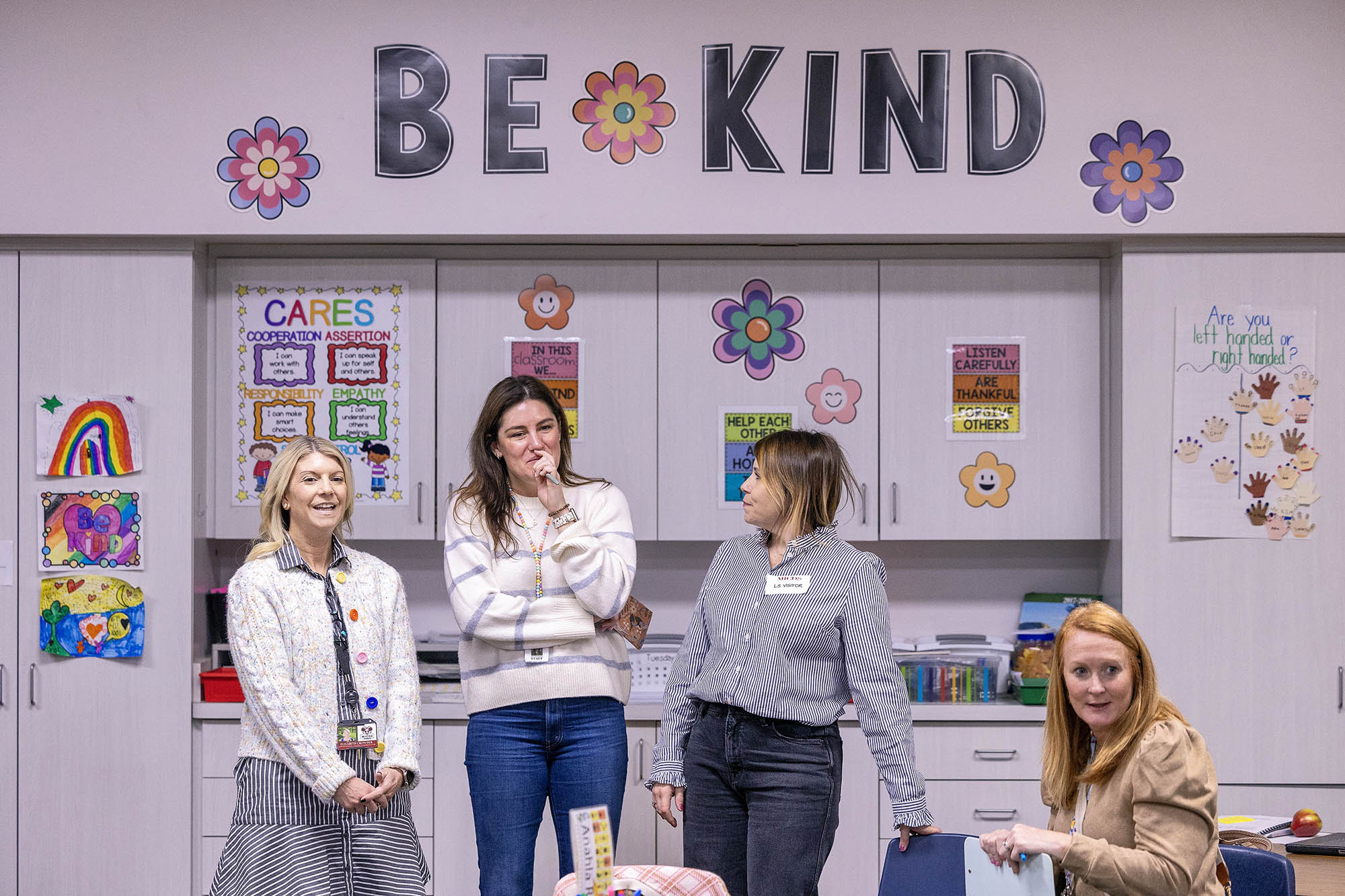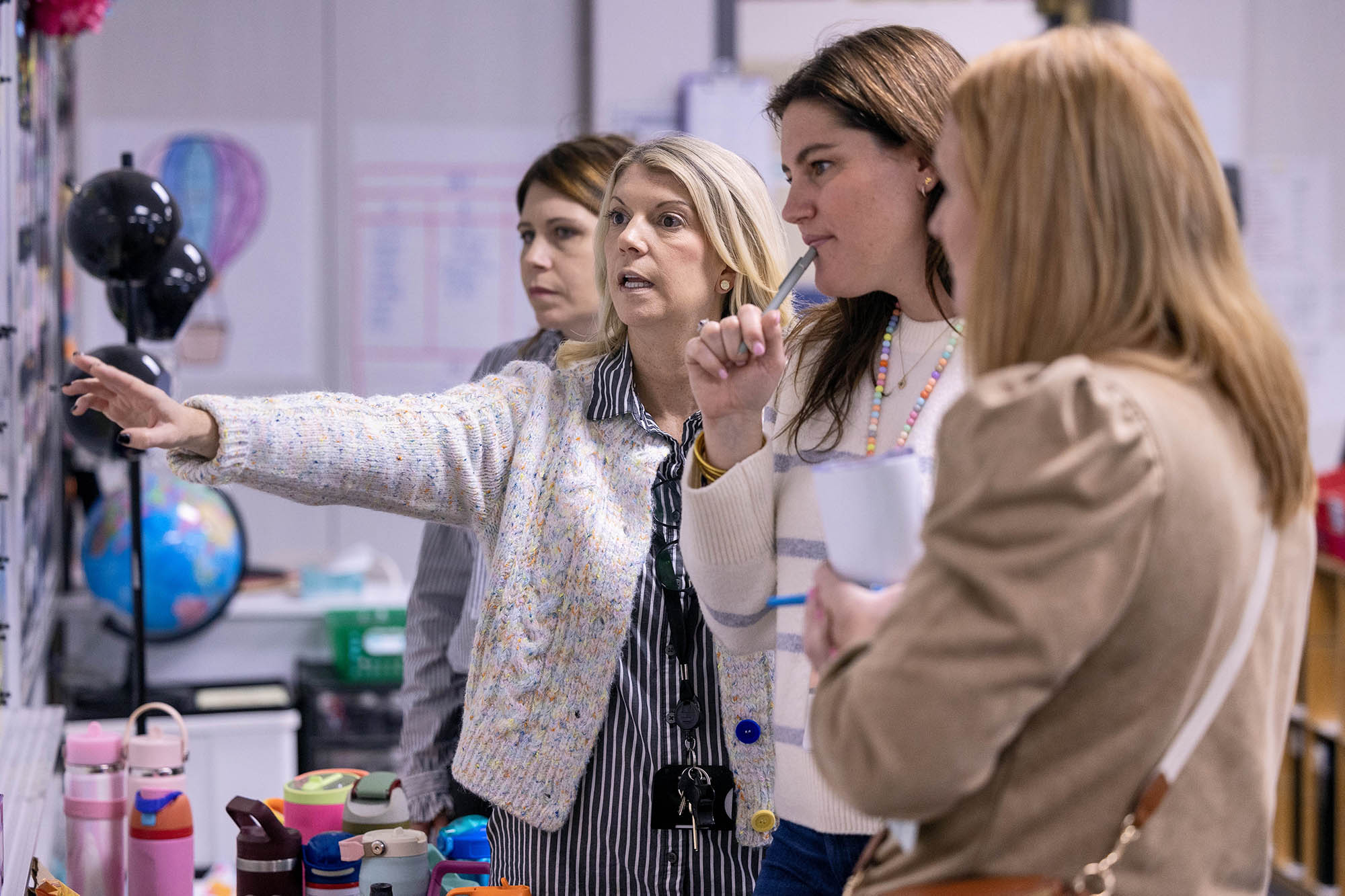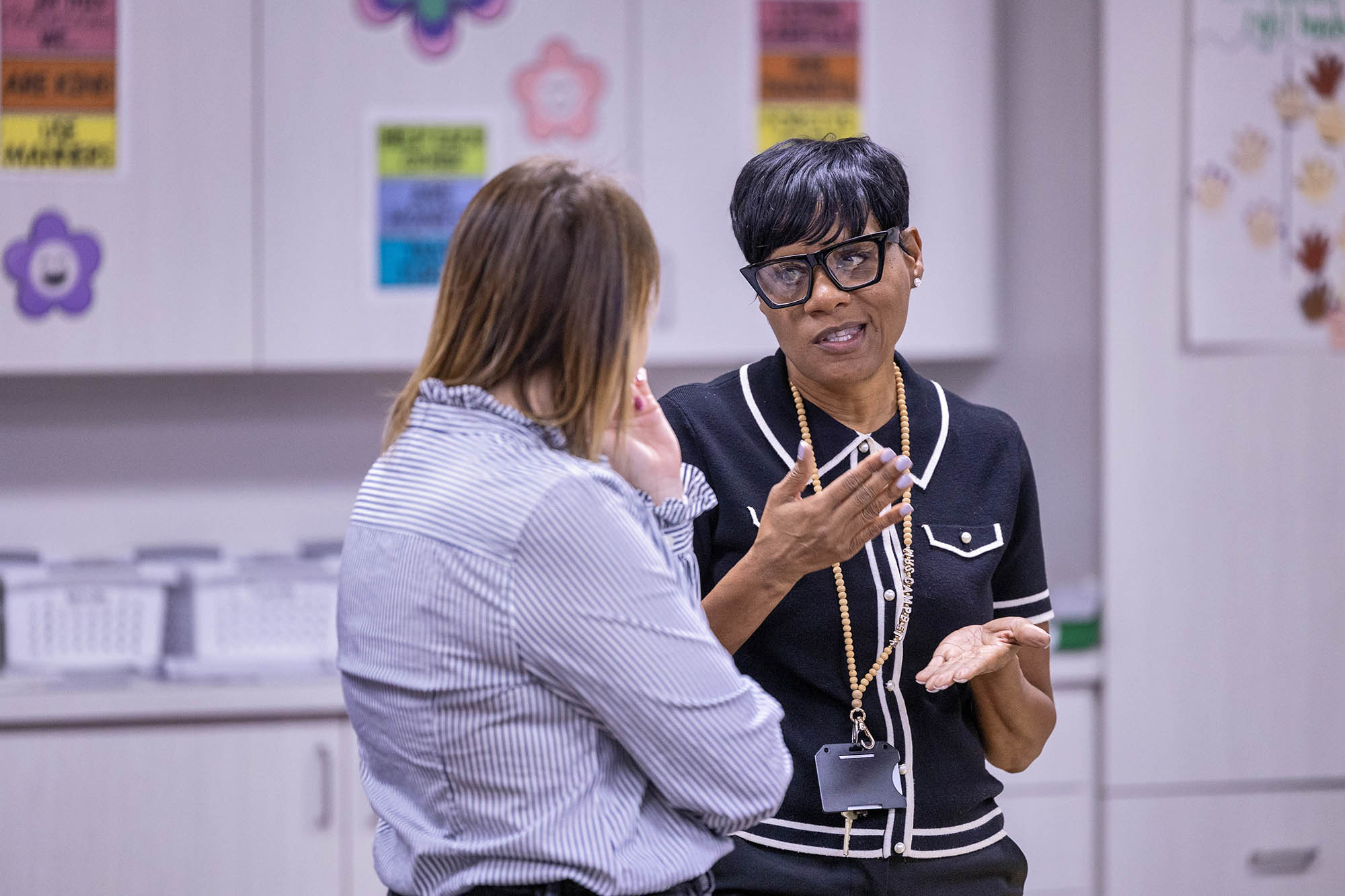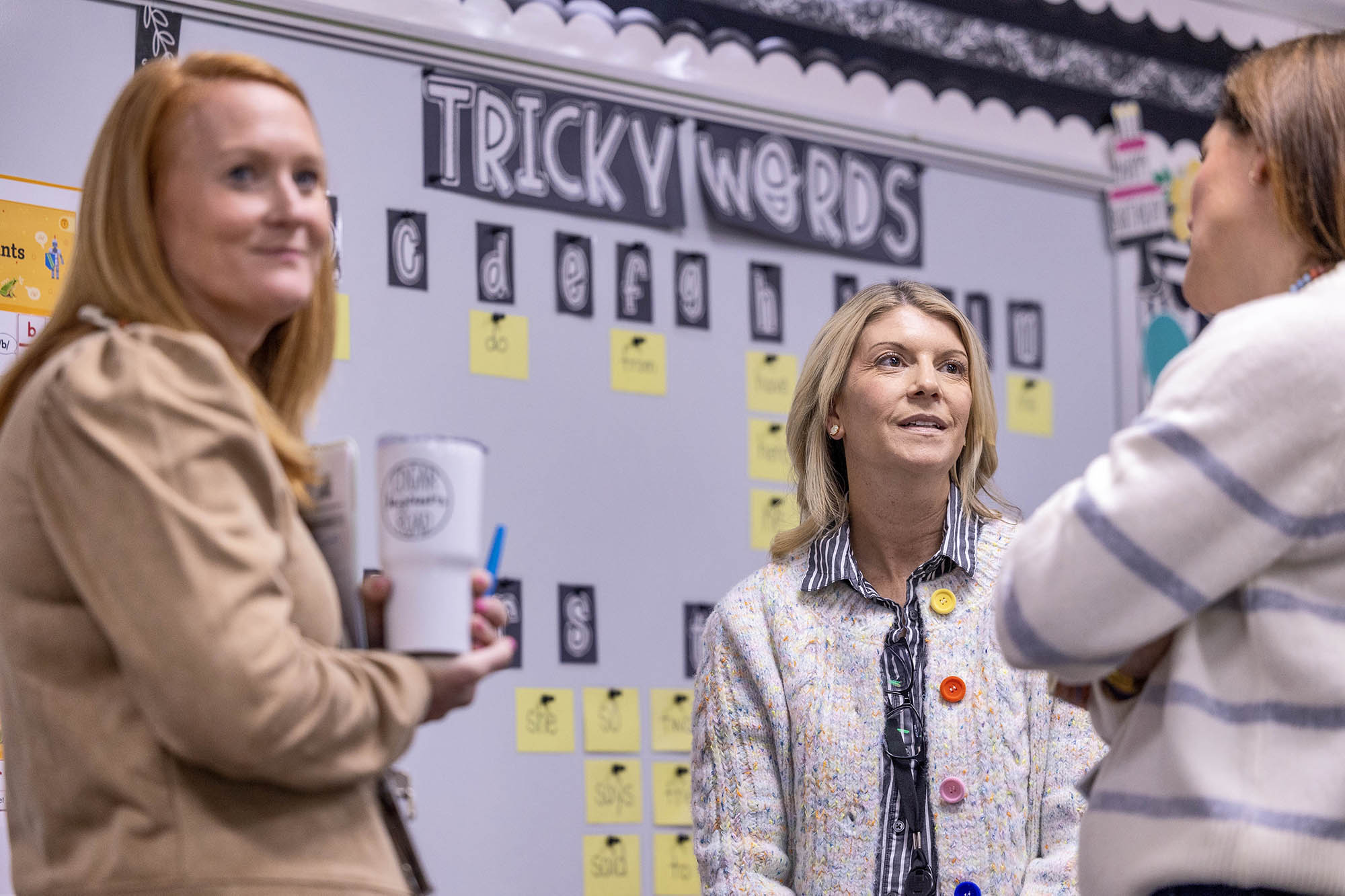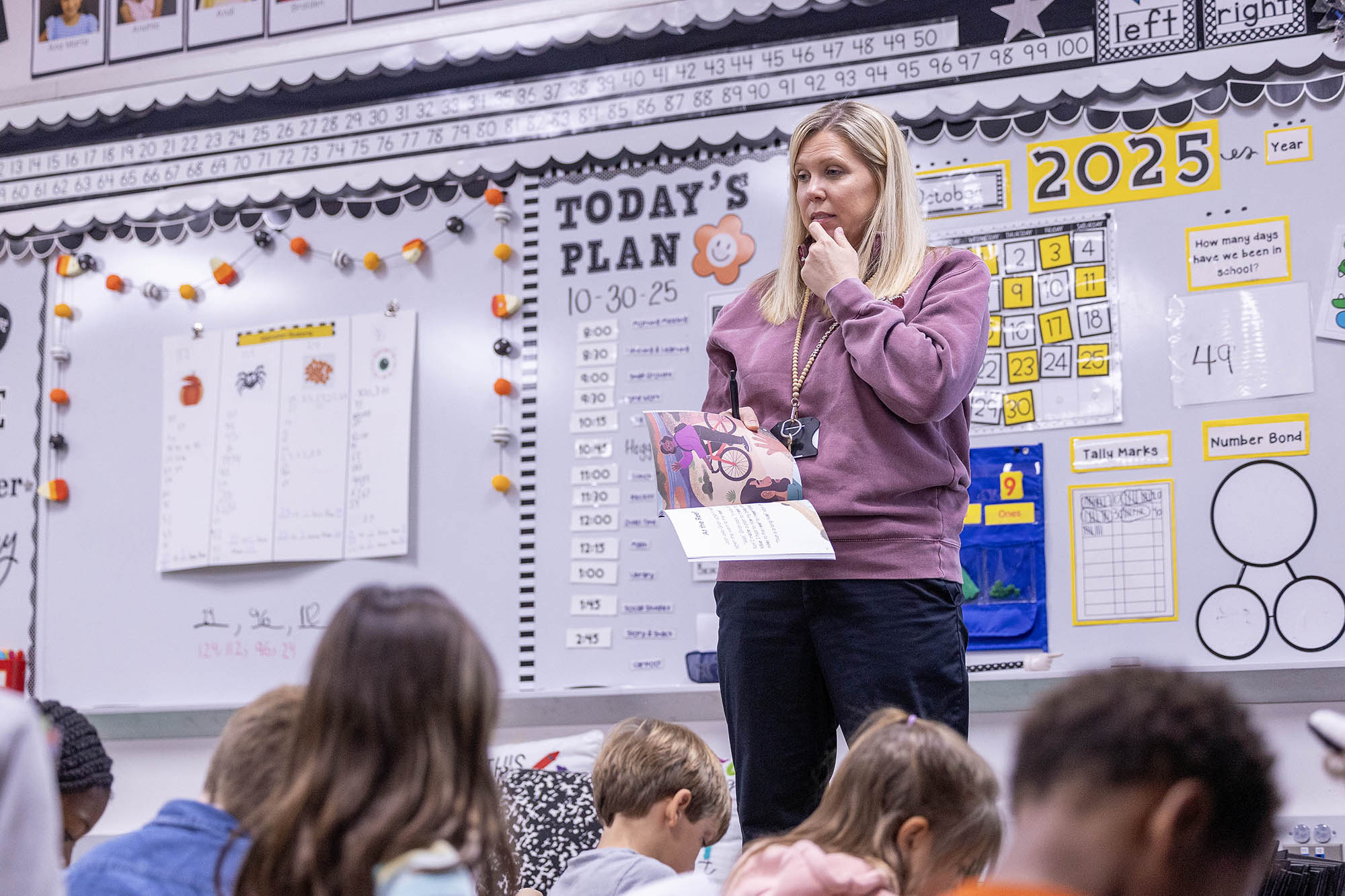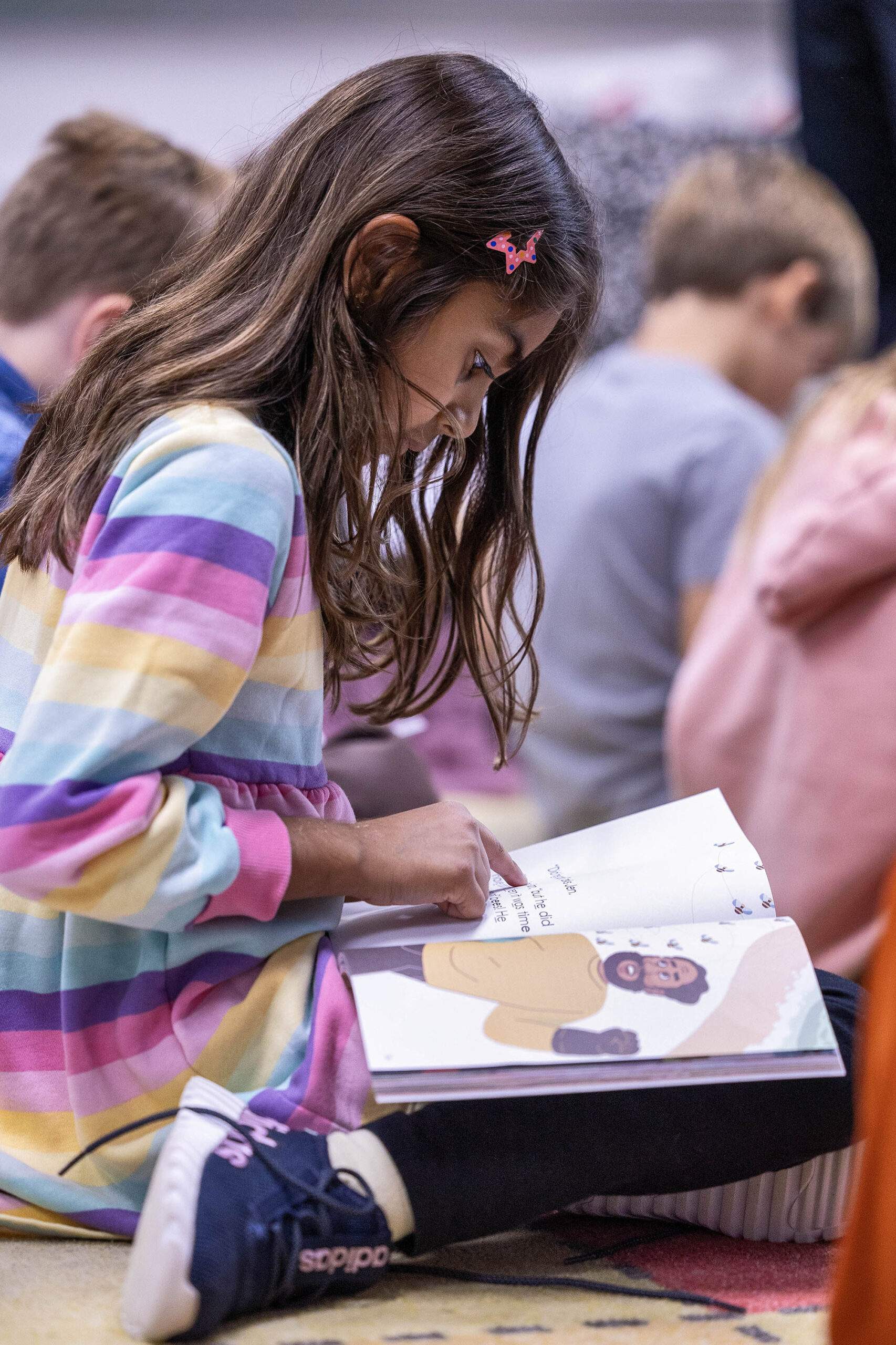By Liz Crowder, Lower School Literacy Coordinator
Teachers from the MICDS Beasley Lower School recently hosted educators from one of the local school districts in the St. Louis area for an observation day, highlighting the successful implementation of the Core Knowledge Language Arts (CKLA) curriculum.
The visit underscores the growing regional interest in MICDS’ effective teaching strategies and student success with the new literacy program. School districts across the Missouri area have been reaching out to MICDS Lower School Literacy Coordinator Liz Crowder to observe the masterful way Beasley educators are teaching the Content Knowledge Language Arts Curriculum. This interest is a testament to the dedication and expertise of the MICDS faculty and the impressive academic gains seen in their students.
The observations began in Second Grade Homeroom Teacher Nicole Skaggs’ classroom. Ms. Skaggs taught a CKLA foundational grammar skills lesson focused on contractions. The observers noted the students’ enthusiasm and successful demonstration of their knowledge during the lesson, highlighting the effectiveness of Ms. Skaggs’ instructional approach.
The visiting teachers next moved to the class of First Grade Homeroom Teacher Robin Campbell and Lower School Teaching Associate Kara Pracht. In their classroom, Ms. Pracht delivered an engaging phonics lesson that clearly demonstrated foundational reading skills instruction. This session provided a practical model for the visiting teachers. Following the lesson, Mrs. Campbell shared her valuable feedback and expertise, specifically related to teaching CKLA lessons, fostering a rich environment for professional development and collaborative learning among the educators.
Finally, the observation tour concluded in Third-Grade Homeroom Teacher Meg Mottl’s classroom, where she led an engaging CKLA lesson on animal classifications. The students were actively using their critical thinking and vocabulary skills to describe and classify various animals, differentiating between vertebrates and invertebrates. This observation showcased the integration of knowledge and skills, demonstrating how students are encouraged to build deep understanding across content areas.
The collaborative day concluded with a dynamic question-and-answer discussion session. The visiting teachers had the opportunity to meet with Ms. Crowder, Ms. Antolik, and Ms. Skaggs.
This valuable session allowed the visiting group to delve deeper into several key educational topics, including:
- Teaching instructional methods
- Their pedagogy for teaching English Language Arts (ELA)
- Strategies for maximizing student growth in ELA
- Techniques for boosting student engagement in the classroom
The overall feedback from the visiting educators was overwhelmingly positive. The teachers noted they were thoroughly impressed by our wonderful and knowledgeable teachers and students in the Lower School.
One visiting teacher shared particularly strong praise, stating that the observations and insights were “very valuable” and that they were inspired to apply the teaching techniques they learned in their own classrooms.
This opportunity to observe and discuss teaching practices provided a vital platform for professional growth, showcasing high-quality instruction and the effective implementation of foundational reading and knowledge skills across the grades.
